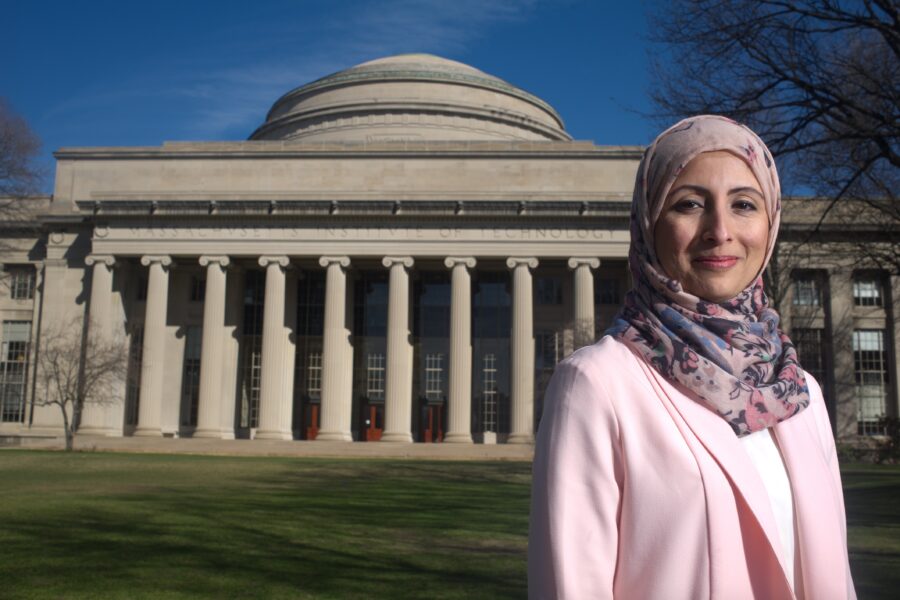Dr. Omaimah Bamasag

Biography
Omaimah Bamasag is a Professor of Cybersecurity at the Department of Computer Science, Faculty of Computing and Information Technology, King Abdulaziz University, Saudi Arabia. She worked at the Massachusetts Institute of Technology (MIT) Mechatronics Research Lab as a postdoctoral fellow from 2014-2016 under the supervision of Prof. Kamal Youcef-Toumi. She is currently the Deputy of Transport Enablement at Transport General Authority, Riyadh. She received her M.Sc. (with distinction) and PhD degrees in Computer Science from the School of Computer Science at University of Manchester in 2001 and 2006 respectively.
Dr. Bamasag's area of expertise is in designing security solutions and protocols for distributed applications, trust management, IoT security, intrusion detection systems, and authentication solutions both for IoT and cloud applications. She also served in the technical program committee of several international conferences and is serving as a reviewer in international journals. She has held various administrative positions at universities including Dean of Community Service and Continuous Education, Vice Dean of College of Computer Science and Engineering (both at the University of Jeddah), and Vice Dean of Faculty of Computing and Information Technology at King Abdulaziz University. She also served as the Director of the Center of Excellence in Smart Environment at King Abdulaziz University. She has also taught undergraduate courses in Information Security. She has been supervising PhD and Masters research and is a Co-Investigator in funded research projects.
During her admin posts, Dr. Bamasag worked in committees for developing Masters and PhD programs in the Computer Science Dept. She also worked, and led the ladies section, in preparation for ABET accreditation for King Abdulaziz University's three programs. The teams' hard work paid off by awarding ABET accreditation for 6 years. Currently, at the Transport General Authority, she is leading the efforts to take the transportation in the kingdom to futuristic smart and sustainable mobility. Pursuing a dream for the Kingdom of Saudi Arabia to be a beacon of knowledge to the world!
MIT Fellowship Research Abstract:
Communication & Control Architecture for Smart and Secure Power Grids
Saudi Arabia’s near future power system infrastructure will need to be a smart power network. Indeed, the KSA has made major investments in multi-technology renewable energy stations. This new power system infrastructure will require more flexibility and versatility in its planning and scheduling tools from both technical and economical point of views. Such tools are essential paths towards modernizing the KSA’s power network and leading to an (a) Efficient use of KSA’s conventional and renewable resources in production of electricity and its consumption, (b) Modern power system that is capable of integrating variable energy resources and energy storage systems in smart ways, (c) Healthier population due to a less polluted environment, and (d) Modern secure power system capable of connecting intelligently with grids of neighboring countries.
This project will investigate design and control architectures for intelligent and secure future power grids. The methods will address the needs of future grids especially from the point of view of information technology related to demand side resources, advanced algorithms and smart grid cyber security & privacy. The approach will take into account the coordination and decision-making in the face of physically-distributed systems and potentially multiple areas of jurisdiction. Other issues of interest will include the physical distribution of devices and their control implies significant transfers of information across a robust communication infrastructure. The measurements and control signals associated with real-time power injections cause concern over personal privacy as well as the ultimate security of the newly designed control system.
Future Smart Grid (SG) will measure its users' power consumption data (CD) and send the CD to authorized entities. Having access to CD will allow users to be more aware of their power consumption and costs, and power suppliers to predict their consumers' demands in an accurate way. This will result in an improved Smart Grid in terms of reliability and efficiency. However, uncontrolled access to CD may lead to building individual's users' power consumption pattern, and hence, breaching user's privacy. Therefore, it is important to improve SG's reliability and efficiency together with maintaining security and privacy to consumers' data. This research will propose a security solution to address the aforementioned need.
Fellowship Sponsored By
- Saudi Aramco
- King Fahd University of Petroleum and Minerals (KFUPM)